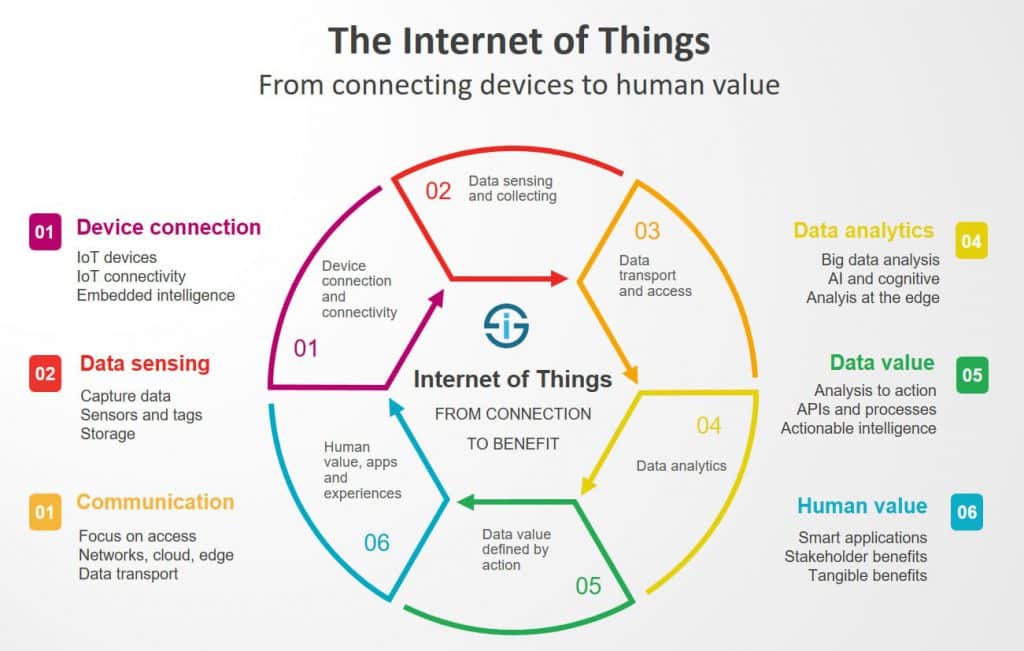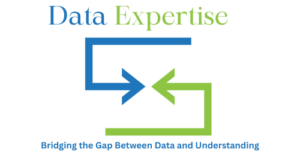In our rapidly evolving digital age, the fusion of IoT (Internet of Things) and data connectivity is fundamentally reshaping industries, amplifying efficiencies, and propelling us toward an era characterized by unprecedented interconnectedness and intelligence.
The IoT Evolution
The essence of IoT lies in its ability to weave together a sprawling network of physical devices, endued with sensors, software, and connectivity, allowing them to collect and exchange data autonomously. These devices are a diverse array, ranging from common household items like thermostats and wearable gadgets to industrial behemoths and autonomous vehicles. The true potential of IoT, however, transcends mere data collection. It hinges on the capacity of these devices to communicate with one another, enabling the seamless sharing of data, fostering informed decision-making, and even automating actions.

Key Benefits of IoT and Data Connectivity
1. Enhanced Efficiency
IoT sensors furnish real-time data, offering organizations a dynamic lens into their operations. For instance, in agriculture, IoT-connected sensors keep tabs on soil conditions, weather patterns, and crop health. This allows farmers to execute data-driven decisions regarding irrigation, fertilization, and harvesting, leading to increased crop yields while conserving valuable resources.
2. Improved Safety
Across multiple sectors, IoT stands as a bastion of safety enhancement. In the healthcare domain, wearable devices embedded with IoT technology can meticulously track patients’ vital signs and promptly send out alerts in case of medical emergencies, thereby functioning as virtual lifelines for those requiring urgent medical attention.
3. Cost Savings
IoT and data connectivity have the power to deliver substantial cost reductions. Through process optimization and predictive maintenance, IoT can help identify machinery issues before they escalate into costly breakdowns, mitigating downtime and repair expenditure. In manufacturing, IoT-driven predictive maintenance can dramatically cut operational costs.
4. Data-Driven Decision-Making
Data generated by IoT devices can be harnessed for astute decision-making. For instance, in retail, IoT devices can track customer behavior in real-time, providing insights into buying patterns and enabling retailers to tailor marketing strategies for maximum effect.

Real-world Applications
- Smart Cities
Cities worldwide are progressively integrating IoT solutions to become smarter and more sustainable. Smart traffic management systems, reliant on data from sensors and cameras, can optimize traffic flow, diminish congestion, and curtail pollution. Smart waste management systems employ sensors to optimize trash collection schedules, minimizing costs and environmental impact.
- Healthcare Wearables
The surge in popularity of wearable IoT devices, such as fitness trackers and health monitors, is undeniable. These wearables amass data on users’ physical activity, heart rate, sleep patterns, and more. Healthcare providers can leverage this data for remote patient monitoring, early disease detection, and tailoring personalized treatment plans.
- Industrial IoT (IIoT)
Within the industrial sector, the Industrial Internet of Things (IIoT) is transforming manufacturing and logistics. Factories equipped with IoT sensors and connectivity can continuously monitor machine performance, track inventory in real-time, and optimize supply chains. This leads to heightened efficiency, reduced waste, and improved profitability.
Navigating Challenges
Amidst the boundless opportunities ushered in by IoT and data connectivity, challenges loom large, particularly those related to data privacy and security. As the quantity of devices collecting and transmitting sensitive information escalates, safeguarding data privacy and fortifying cybersecurity become paramount. Regulatory frameworks, including GDPR and CCPA, are shaping how organizations handle IoT data, underscoring the significance of compliance and stringent security measures.
Conclusion
The convergence of IoT and data connectivity is catalyzing innovation across industries, imparting improvements in efficiency, safety, and cost-effectiveness. As we advance toward a more interconnected world, addressing concerns regarding data privacy and security becomes imperative. The dual approach of harnessing IoT’s potential while safeguarding data will be pivotal in unlocking a future marked by unprecedented interconnectedness and intelligence.
Whether you’re an individual intrigued by the latest technological breakthroughs or a business keen on exploring opportunities in the IoT landscape, understanding the profound impact of IoT and data connectivity is essential. Staying informed, fostering connectivity, and embracing the possibilities of a smarter world are the keys to unlocking our brighter, interconnected future.
By harnessing the synergy of IoT and data connectivity, we are paving the way for a future where devices, systems, and individuals collaborate seamlessly, forging a world that is smarter, safer, and more sustainable.




Reviewed by 1 user
excellent